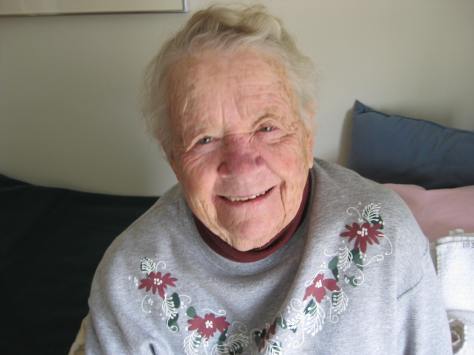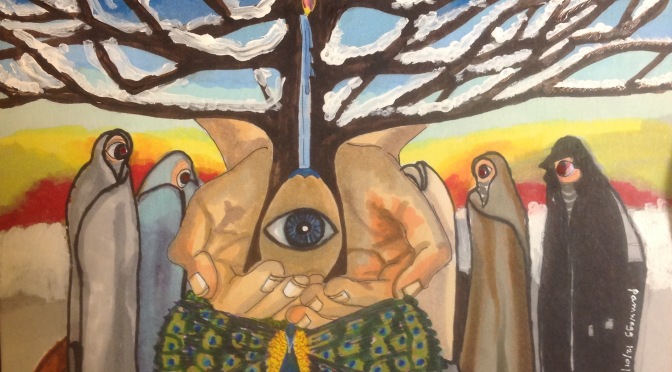Reviews would be greatly appreciated! Here is link to book at Amazon.com
TO THE READER
who may be sitting as I am
in a green recliner with a cup of tea
staring out through the porch
to a darkened streetlamp outside the diner,
with a book in her lap, mine, I hope
the only one I feel I should have to mention
if I mention a book in a poem I write;
to the reader, the nitpicker, the one
who may be wondering why
on p. 47 there are two ands, one
right after another, and whose fault that is;
and to the reader, who may be tired
after a long ride home on the bus
after dark and a meal not worth mentioning
who picks up my book but finds his eyes
closing before he has opened the cover,
I say: Forgive me
I am only a writer sitting in a green recliner
with a cup of tea, I can’t explain
those two ands or the mysterious
streetlamp or warm the feet of a tired
reader in his bed. I can only put music on
and tell him stories to make movies
turn in his head, to let him wake
with the sudden understanding that poetry
may be all it takes to make a life—
well, my life at any rate, and maybe his,
and maybe the nitpicker’s and yours, too,
staring through the porch to the streetlamp
where what happens so mysteriously is poetry—
and the whole night is wrapped
in the words spoken by two strangers
meeting there, or not spoken, which is poetry too,
and all of us who listen are waiting
for the music of what is to happen.
(Last line, thanks to Helen Vendler)
MOSAIC
Mosaic: a word that means from the muses, from Moses
and a work of art created from broken fragments of pottery,
stone or glass.
Even the first time, surrender was not hard,
though the grownups and mothers
with their drinks and swizzle sticks
undoubtedly thought it so when you volunteered
your only present that 10th Christmas
to a younger child who wouldn’t understand
being giftless at the tail end of a line to Santa,
nor your inherent sin in being born.
Such generosity should have stayed
between your concept-of-God and you,
but grownup admiration (you could not hope
to make your act unpublic) sullied the soap
of any generosity’s power to cleanse you.
Other atonements followed, only one
almost perfect, being perfectly anonymous
spoiled by an accomplice’s later telling.
Perfection? You never made that grade,
your terrible love for God demanding all life
from your life. No one told you, “Live a lot,”
not in words that made it matter, though
they doubtless counseled, “Live a little.”
You were always in school to be perfect,
never knowing that life is a classroom
where one learns to love flaws
by throwing bad pots, to shatter
them with careful hammer,
assembling beauty from broken things.
FORGETTING TO REMEMBER
Multiples: former shorthand for people diagnosed
with multiple personality disorder, believed to arise
from early sexual trauma and abuse; now considered
a dissociative disorder.
Two suicides and such a multitude of multiples
wrung from their imagination the year I was there
by student psychologists eager to make names for themselves,
the halfway facility would be shut down for good the next.
But not before seeds of uncertain certainties were sown:
repressed memories miraculously recovered from the abyss,
of incests, sodomies, satanic abuses, so even my stalwart insistence
on a happy-go-not-so-unlucky childhood
became stained by the sepia of doubt:
had I really escaped such clutches?
Knowing memory’s foibles, it’s hard to trust
what my sister tells me was true: that there really were
neighborhood “Bad Boys” and a shack in the woods
where they kept a stash of comic books and pin-up calendars,
the price to read there all afternoon if you were a girl
a feel, that I’m not wrong to believe I read my fill
of “Archie” and “Prince Valiant” and “Peanuts” inside.
Though I had to find my own way out afterwards
after they’d gone, taking their comics with them,
leaving just June, now unpinned from the wall
in her tiny shorts, the shine of her raspberry lips
pouting next to a tractor, I recall only
dry motes falling through the last rays
of sun, the smoky smell of sawdust and dust,
and grit under my bare feet, my trembling relief,
as I studied a stroll through the back door at home,
perhaps worse for the wear but on time for supper
so nobody questioned the dirt in my hair.


 SPIRO, Marian Wagner, 89, of Madison, CT and Amherst, MA died on June 18, 2017 at the Hospice of the Fisher Home after a lengthy illness. Marian was born in Fall River, MA on February 16, 1928 to Oliver and Carolyn Wagner. She was raised in Fall River during the Depression and graduated from BMC Durfee High School. She then earned a two-year degree from Vermont Junior College that enabled her to work as a lab technician. It was at a lab at Harvard Medical School that she met her husband Howard Spiro. They were married in 1951, made a home in New Haven, CT and quickly had four children: Pammy, Lynnie, Martha, and Philip. In the meantime, she returned to school, received her undergraduate degree and in 1970 began a twenty-year career as a renowned teacher of science and math at The Foote School in New Haven. She introduced computers to her students long before they ended up in their back pockets and once built a solar-heated oven to bake the Thanksgiving turkey. She helped to revive the school newspaper, which was later renamed the “SPI” in her honor. Her dogs were frequent guests in her classroom, and when she wasn’t helping to train her friends’ dogs or hosting canine pool parties in her backyard, Marian was taking her own retrievers to local hospitals or mental health facilities to hang out with patients. Throughout her life, she was known for expert woodworking skills, her intuitive ability at navigating a sailboat, her competitiveness on the tennis court or in a game of bridge or scrabble, her love of golden retrievers, her lasting friendships, and her deep devotion to her family. She never let the social conventions of her day block her dreams: she embarked on a lifetime avocation of woodworking despite being told it was not for girls, she became a teacher of science before most scientists would accept women as their peers, and she even made the phone call to Howard for a date that led to their eventual marriage. She will be sorely missed by her four children: Pamela Spiro Wagner, Carolyn Spiro Silvestri, Philip Spiro and Martha Spiro; her six grandchildren: Allison Spiro-Winn, Jeremy Spiro-Winn, Hannah Spiro, Claire Spiro, Oliver Spiro and Adriane Spiro; and her many friends and students. She follows the passing of her parents Oliver and Carolyn, her husband Howard of 61 years, her sister Barbara, and her brother Oliver. A memorial service will be scheduled at a later time. In lieu of flowers donations may be made to the Marian W. Spiro Fund for Science Enrichment at The Foote School in New Haven, CT or the Hospice of the Fisher Home in Amherst, MA.
SPIRO, Marian Wagner, 89, of Madison, CT and Amherst, MA died on June 18, 2017 at the Hospice of the Fisher Home after a lengthy illness. Marian was born in Fall River, MA on February 16, 1928 to Oliver and Carolyn Wagner. She was raised in Fall River during the Depression and graduated from BMC Durfee High School. She then earned a two-year degree from Vermont Junior College that enabled her to work as a lab technician. It was at a lab at Harvard Medical School that she met her husband Howard Spiro. They were married in 1951, made a home in New Haven, CT and quickly had four children: Pammy, Lynnie, Martha, and Philip. In the meantime, she returned to school, received her undergraduate degree and in 1970 began a twenty-year career as a renowned teacher of science and math at The Foote School in New Haven. She introduced computers to her students long before they ended up in their back pockets and once built a solar-heated oven to bake the Thanksgiving turkey. She helped to revive the school newspaper, which was later renamed the “SPI” in her honor. Her dogs were frequent guests in her classroom, and when she wasn’t helping to train her friends’ dogs or hosting canine pool parties in her backyard, Marian was taking her own retrievers to local hospitals or mental health facilities to hang out with patients. Throughout her life, she was known for expert woodworking skills, her intuitive ability at navigating a sailboat, her competitiveness on the tennis court or in a game of bridge or scrabble, her love of golden retrievers, her lasting friendships, and her deep devotion to her family. She never let the social conventions of her day block her dreams: she embarked on a lifetime avocation of woodworking despite being told it was not for girls, she became a teacher of science before most scientists would accept women as their peers, and she even made the phone call to Howard for a date that led to their eventual marriage. She will be sorely missed by her four children: Pamela Spiro Wagner, Carolyn Spiro Silvestri, Philip Spiro and Martha Spiro; her six grandchildren: Allison Spiro-Winn, Jeremy Spiro-Winn, Hannah Spiro, Claire Spiro, Oliver Spiro and Adriane Spiro; and her many friends and students. She follows the passing of her parents Oliver and Carolyn, her husband Howard of 61 years, her sister Barbara, and her brother Oliver. A memorial service will be scheduled at a later time. In lieu of flowers donations may be made to the Marian W. Spiro Fund for Science Enrichment at The Foote School in New Haven, CT or the Hospice of the Fisher Home in Amherst, MA.











